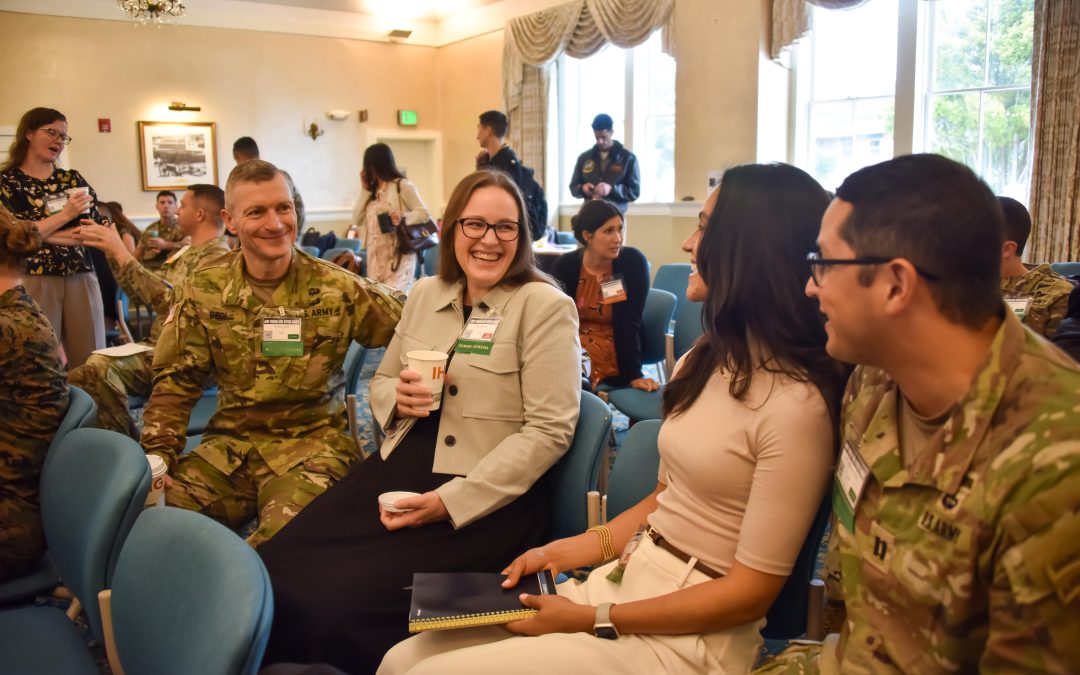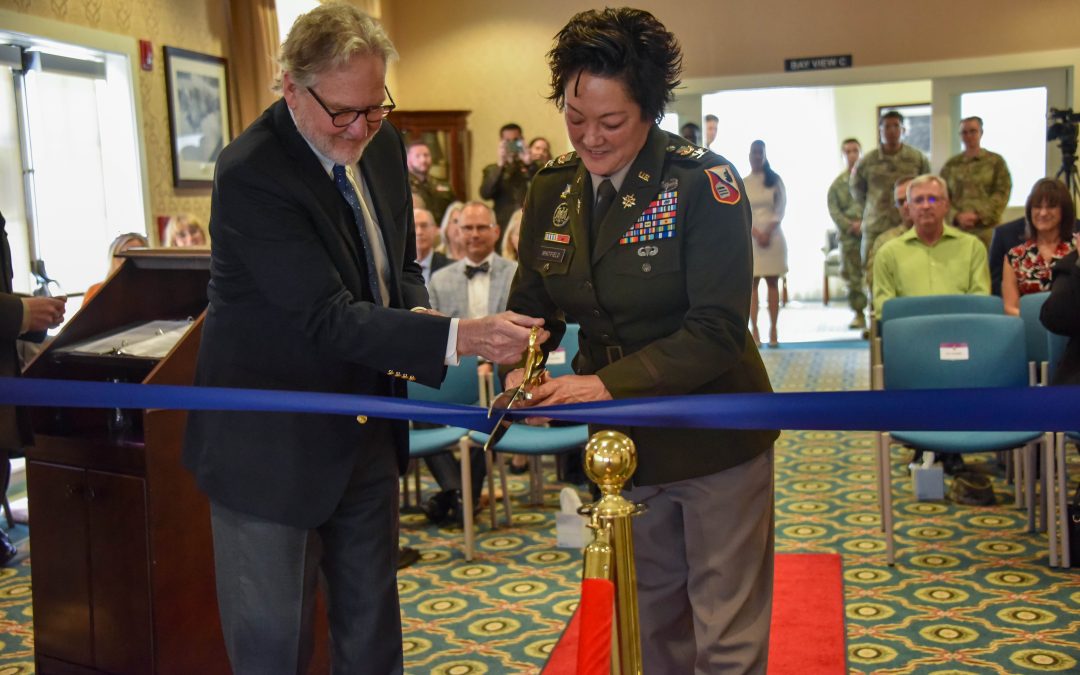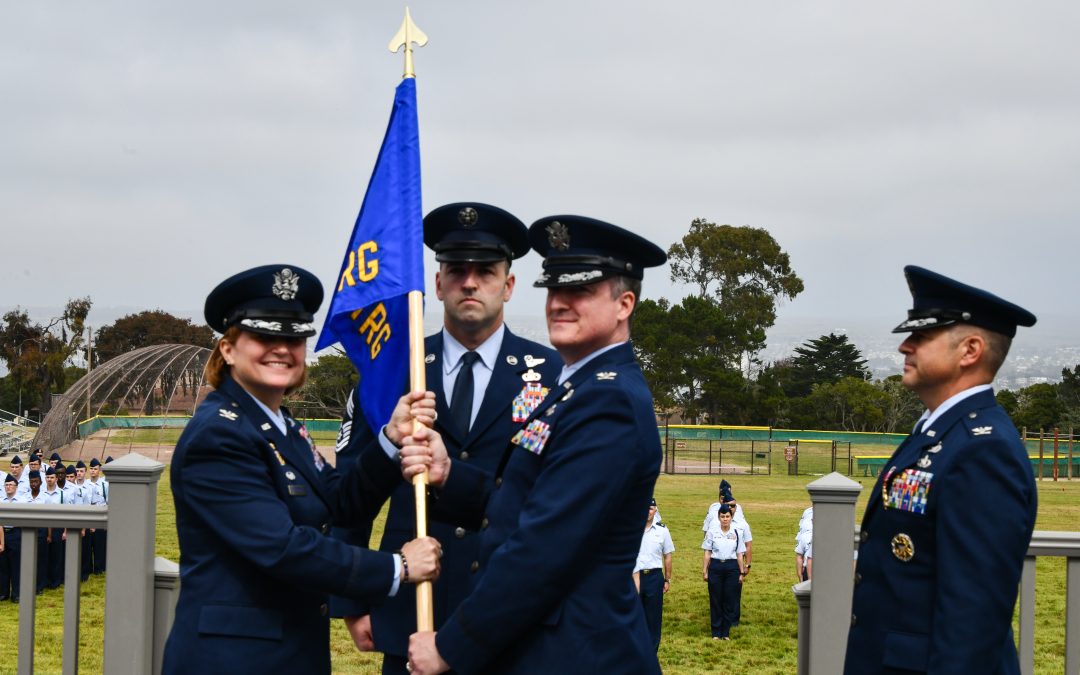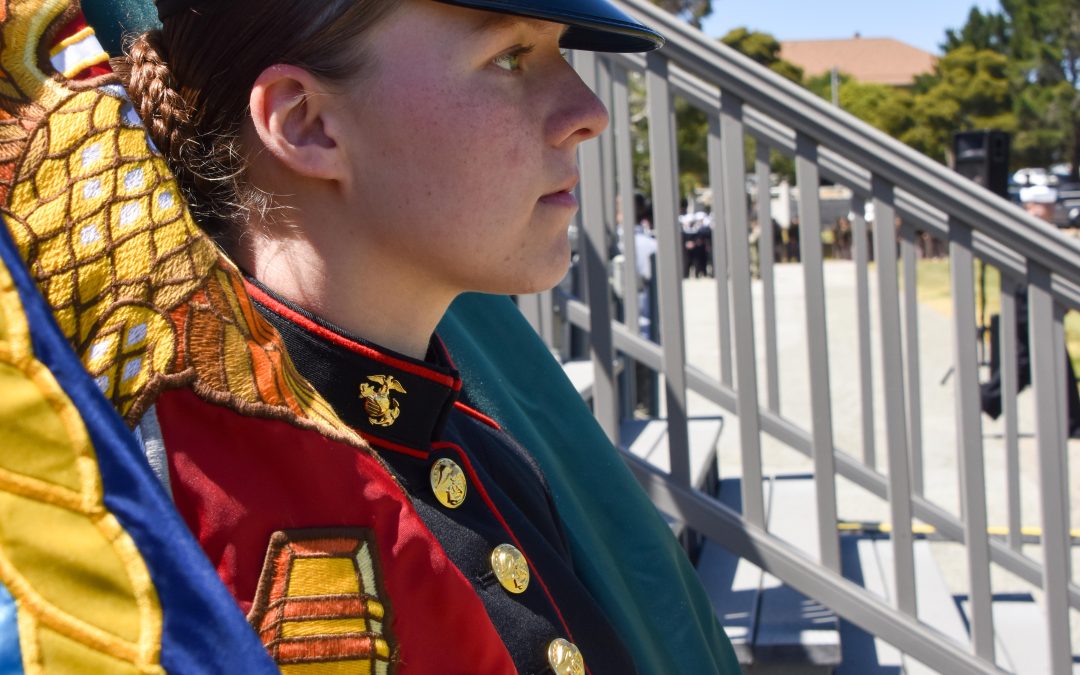By Tammy Cario
In honor of Sexual Assault Awareness Month, the National Organization for Victim Advocates named Defense Language Institute Foreign Language Center’s own Dawn Holmes, a sexual assault prevention and response victim advocate, Exceptional Military Victim Advocate of 2019, in a ceremony held in Washington, D.C., April 11.
“I was overwhelmed with winning the award,” Holmes said. “I hope that it brings attention to what I do and how prevalent the problem is, especially in the military.”
When Holmes arrived at DLIFLC in 2017, she already had four years of experience with SAPR in the military and 16 years as a victim’s advocate in total. Having worked as a victim advocate in the civilian sector and with the Department of Defense, Holmes has noticed a major difference between the two.
“I can’t count the number of victims I’ve worked with, whether it be DOD civilians, military dependents or active military or veterans. But I can count the number of victims I’ve worked with that were not also victims of previous childhood sexual trauma. Only one.”
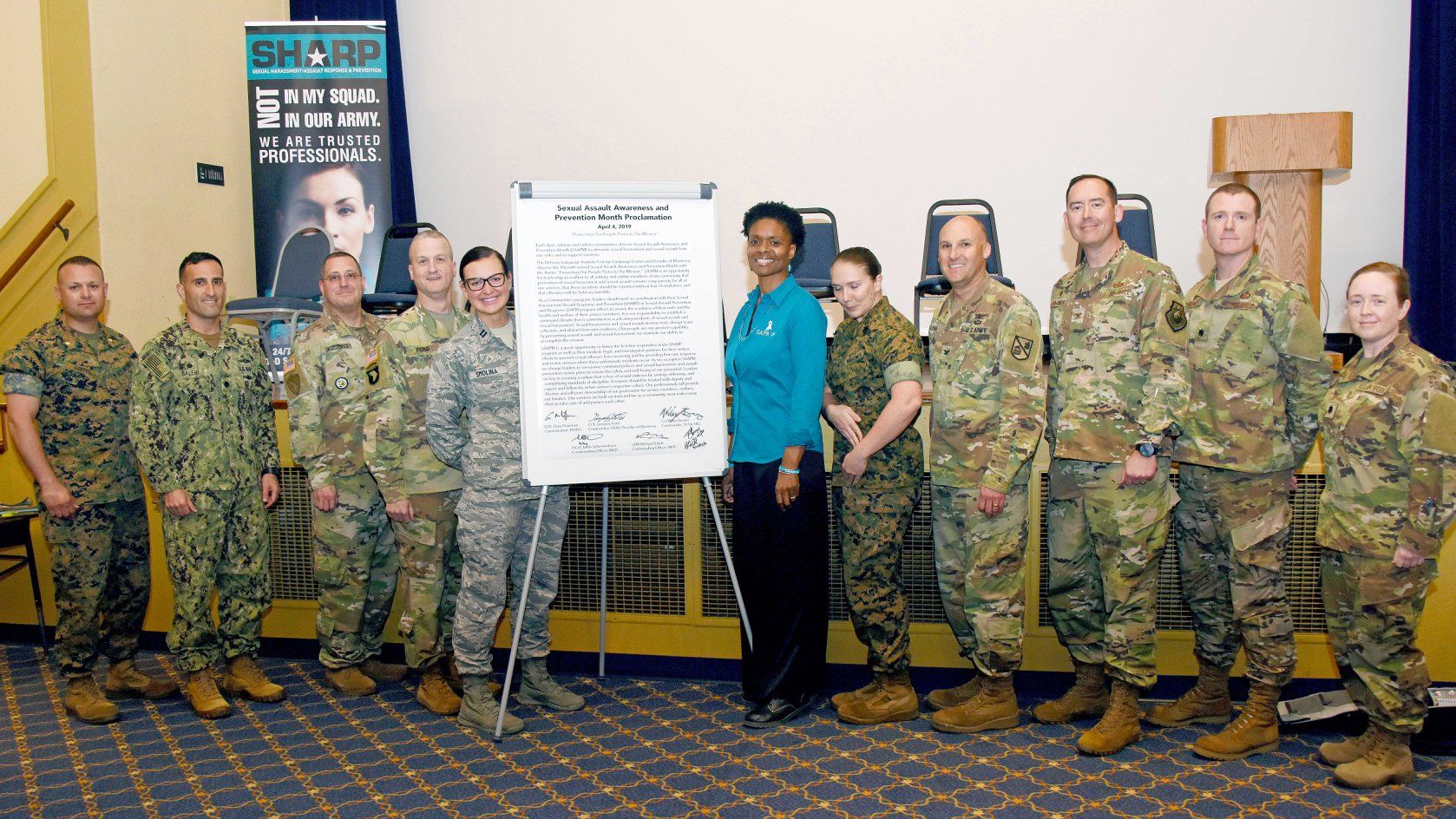
To Holmes, this means people are using the military to get out of some ugly situations and improve the conditions of their lives. And they feel empowered once they join the military and discover all the things they are capable of. But, she added, the military can also be an incredibly stressful time. “Life-changing events are a trigger to trauma,” she said.
With that understanding, it became Holmes’ goal to connect students with each other in a program called Teal Ropes.
“Teal Ropes is a peer-to-peer advocacy for SAPR on post,” explained Airman 1st Class Emilee Kemmerer, a Levantine student and president of the Teal Ropes here at DLIFLC.
“Teal Ropes come together to become part of the solution, not the problem, and end rape culture and educate,” Holmes explained. “They are there as a confidential resource to lead people to us. Not a victim advocate, but someone that says ‘I will keep your secret. Let me take you to someone who can help.’”
Kemmerer has been an active participant in the Teal Rope program since she arrived at DLIFLC in 2018. She believes being a Teal Rope is one of the greatest things she’s done for herself. “It’s also one of the greatest things I’ve done to give back to anyone that needs it,” she said. While it’s an Air Force program, Kemmerer says it is open to all branches.
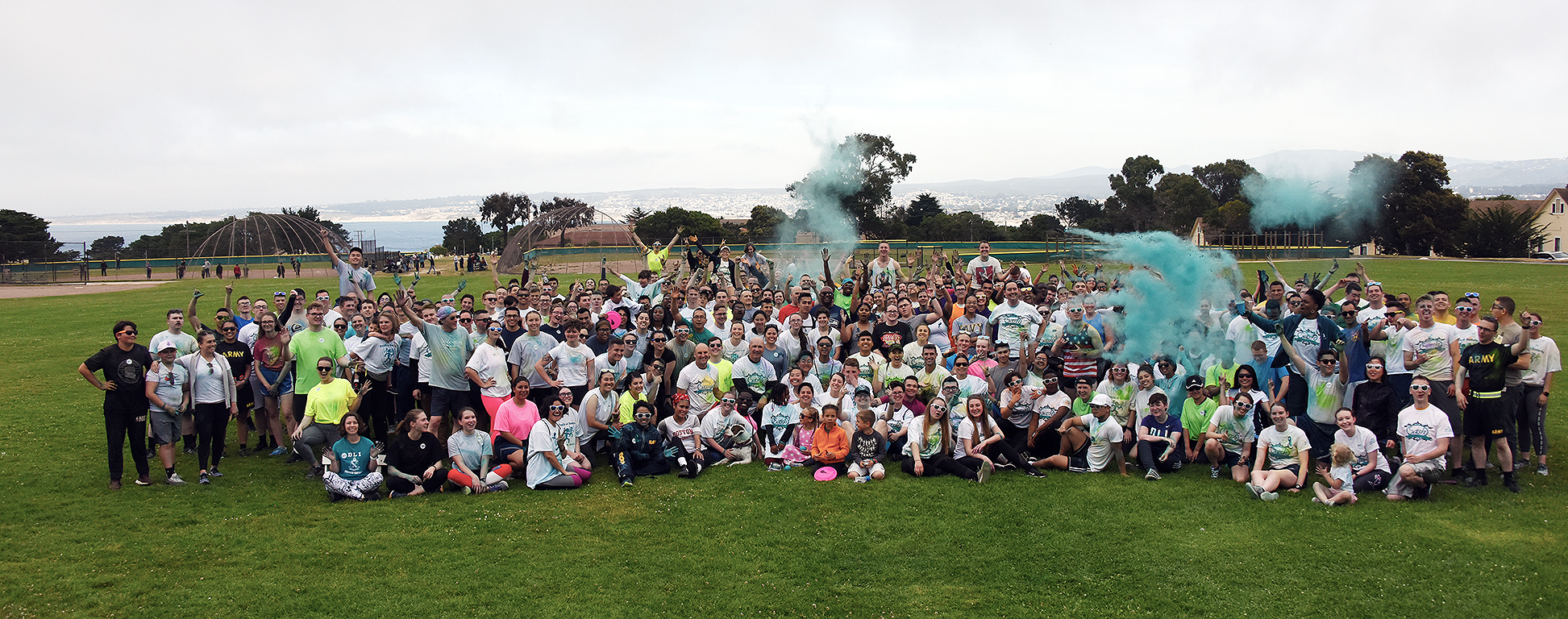
Teal Ropes are so named because teal is the color of the sexual assault awareness campaign ribbon and a rope, or aiguillette, is the Air Force’s designation for a service member in leadership who has had special training.
The Teal Ropes program at DLIFLC has grown from four members to its current membership of 29. One of the things Holmes did to encourage it was to foster other programs that encouraged personal interaction.
“We were in a staff meeting and we talked about walking by or driving by students waiting at the bus stop, with people all around them and they’re all doing this,” Holmes held up her phone to her face to illustrate the point that students are isolated from each other. “I thought we can always hike. But who’s going to come to a victim’s hiking group? If they come, everyone’s going to know they’re a victim.” But there have been numerous studies about how healing it is for people to get out into nature, she said. “We don’t come together and say, ‘Hey we’re here to talk about sexual assault.’ We just come together to hike.”
Holmes attributes this and another program, Savory SAPR Sundays, with helping to raise awareness for the Teal Ropes, a group that meets every Tuesday for training.
On top of encouraging the Teal Rope program, Holmes also gives a three hour SAPR brief to all incoming Air Force students. She said people often come through who believe the briefing is not for them because they aren’t rapists, so they tune it out. But, she said, the program isn’t for sexual attackers.
“If I talk to (a rapist) all day for the next seven days, am I going to change their mind?” That’s just not going to happen, she says. Instead, Holmes tells the crowd, “I’m here to change your mind, to get you involved.”
It’s her passion mixed with practicality that helped Holmes earn the NOVA award. In her experience, however, awards are only a small part of the picture.
“I’ve been so supported at DLI,” she said. “The greatest compliment I ever got was someone here telling me, ‘You make us better.’ That is way more than an award.” She added with a big smile, “Mission accomplished.”

